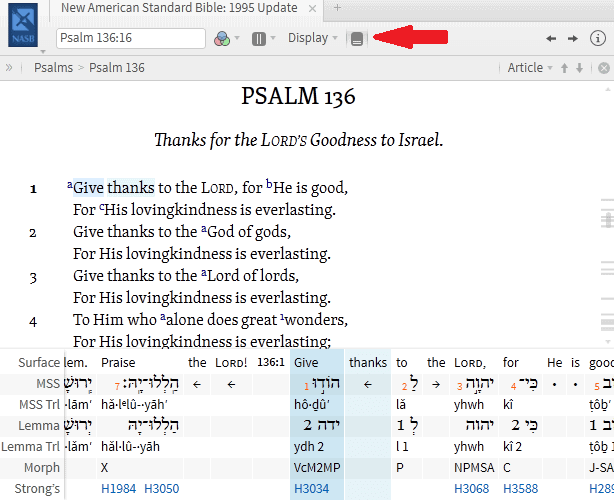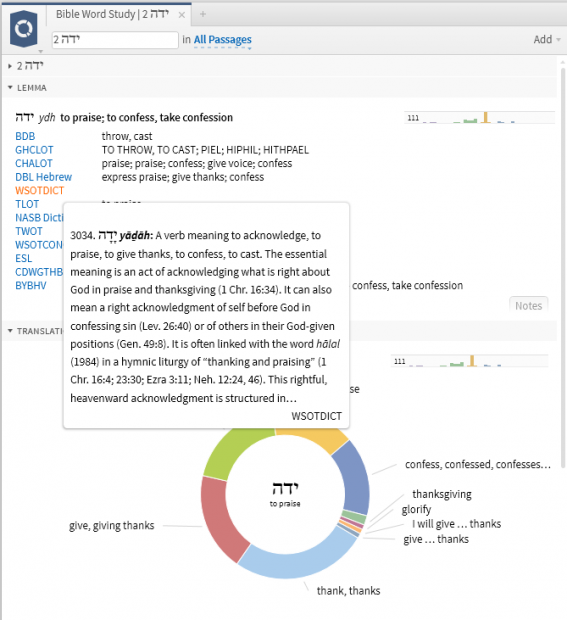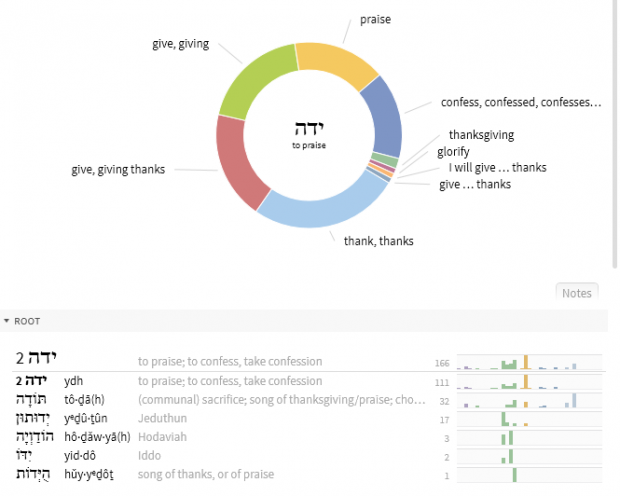When it comes to studying the Bible, I always want to go deeper. My problem: I’m no Greek or Hebrew scholar. That’s one of the reasons I get so excited every time I open Logos. So much original-language research is done for me, I can instantly understand more.
I’ve been studying biblical thanksgiving lately. One place this study takes me is Psalm 136, where the psalmist pens 26 lines of gratitude to the Lord, “For his lovingkindness is everlasting.”
I look it up in my favorite Bible. Since I’m doing a little original-language digging, I’ll go ahead and turn on my reverse interlinear—it’s the table at the bottom of this image.
This entire psalm is encouraging the reader to give thanks to the Lord, who has shown lovingkindness to Israel through creation, delivering them from Egypt, bringing them to the Promised Land, and sustaining them. The psalmist closes by echoing the beginning: “Give thanks to the God of heaven, for his lovingkindness is everlasting.”
If it’s so important that I “give thanks,” I need to know what it means!
This is where the Bible Word Study tool comes in. I right-click “thanks” and pull up more information about the Hebrew lemma. Then I run a Bible Word Study.
The Bible Word Study guide fetches the word’s definitions from my lexicons and dictionaries, and shows me how this word, ydh, is translated across my Bible.
So I learn that giving thanks to the Lord is more than saying “thank you” to God. It’s also an acknowledgement of who he is and what he has done. In the case of Psalm 136, it makes sense: acknowledge that the Lord has done incredible things for his people, and thank him, for his lovingkindness is everlasting.
But I want to go deeper. I want to find examples of this kind of thanksgiving.
With Logos, I’m able to take a look at other biblical words that share this root.
I see that there are 32 uses of the similar toda(h), which is a sacrifice, song of thanksgiving, etc. That’s interesting. I click the Hebrew word, and Logos 5 runs another Bible Word Study!
I can explore the definitions to see that this thankful song of praise to God was an act of worship that proclaimed his mighty works. Also, the word is used for songs like Psalm 100.
. . . which gives me a fine place to keep exploring as I continue to study biblical thanksgiving.








